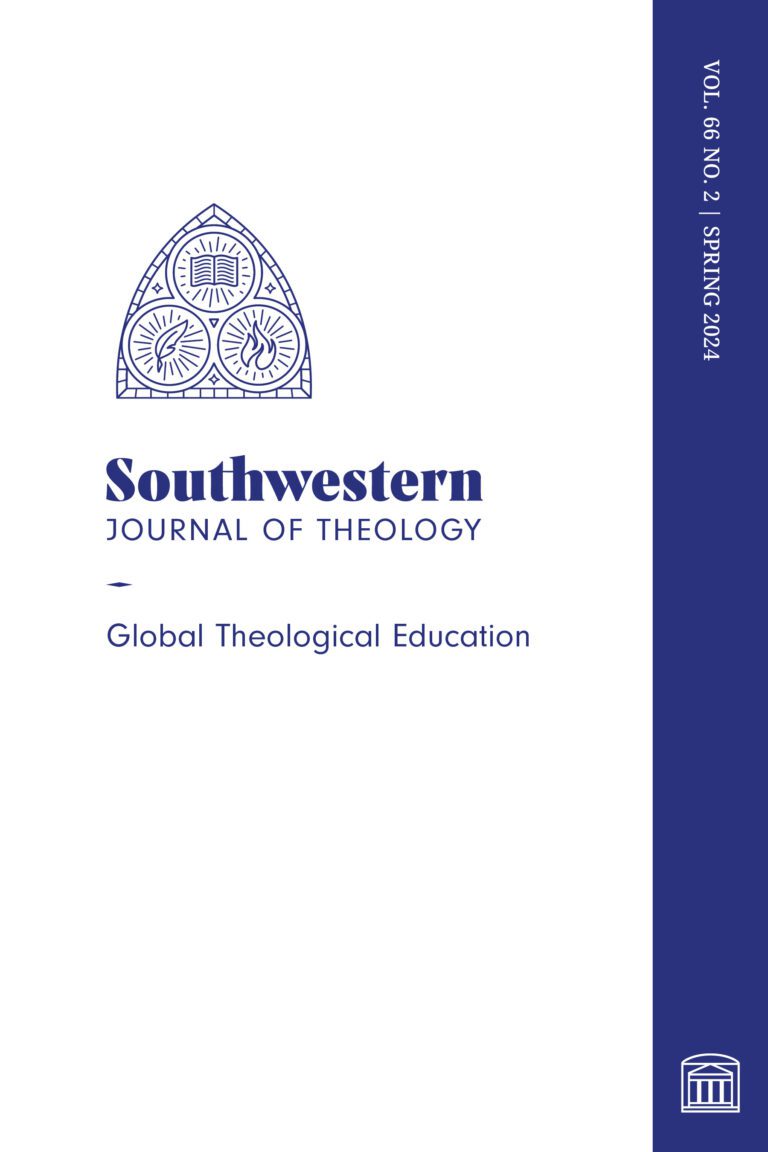
Global Theological Education
Southwestern Journal of Theology
Volume 66, No. 2 - Spring 2024
Editor: Malcolm B. Yarnell III
By Joshua Chatraw and Mark Allen. Grand Rapids: Baker Academic, 2023, 184 pp., $24.99.
What persuades unbelievers to change their minds and reject their current beliefs in favor of Christian beliefs? Chatraw and Allen address this question by confronting the disjunction between modern rationalistic apologetics methods and the state of contemporary culture in The Augustine Way: Retrieving a Vision for the Church’s Apologetic Witness. Their goal is to develop “an integrative model—a way of doing apologetics—that is responsive to cultural and historical variances and … our social imaginaries” (37). Since people carry their own assumptions about reality that filter what counts to them as meaningful evidence, integrative apologetics must begin with those assumptions and seek to engage in terms they find meaningful. The authors see this apologetics model not as something to be created as much as rediscovered. They focus on two works by Augustine, Confessions and City of God, to draw out his methods for engaging the minds of unbelievers. Ultimately, the authors land on a therapeutic model, which they claim regains the best of Augustine’s ideas for a contemporary world.
The book comprises two parts. The authors begin their argument by assessing the state of contemporary reasoning about reality as grounded in desires and longings more than modernistic rationalism. The fracturing of assumptive foundations, in the eyes of the authors, mirrors the fractured Roman world Augustine engaged. Augustine “offers us the resources from an integrated approach that includes the thinking and believing aspects of our humanity…. Understanding people who desire to love and be loved and who reason toward a certain telos they believe will make them happy will change our apologetic encounters” (58).
Part two then walks through Augustine’s testimony from Confessions and his cultural engagement in City of God. They find in his classic works the connection between thinking and believing, where Augustine’s social imaginary had to be reoriented through the narrative failures of Manicheism in order for him to be open to the more fulfilling narrative Scripture offered. Using Augustine’s realization that a questioner’s whole person must be involved for persuasion to occur, Chatraw and Allen push for an apologetic process grounded in local church life, centered on the biblical narrative—creation/fall/redemption/restoration—and aimed at human desires. Their Augustinian approach is a therapeutic approach where the apologist first deconstructs a person’s worldview on the basis of that person’s own desires and then replaces it piece by piece with the Christian worldview seen as both superior at achieving the person’s desires and more coherent from an objective standpoint.
Overall, The Augustine Way is a welcome addition to the apologetics books that have come out over the past few decades. Its strength lies primarily in its awareness of our current cultural state, especially concerning younger generations like Millennials and Gen Z. If apologetics is to serve its offensive function—in the sense that it aids Christians in persuading lost friends and acquaintances to hear the gospel message—then the keen diagnosis Chatraw and Allen offer serves the field well. The authors also reorient the function of apologetics away from a debate format that has become so prevalent yet seems so ineffective at persuasion today. Their goal is not to win an argument but to have a conversation that moves a person’s social imaginary away from falsehoods and toward the truths of the Christian worldview.
At the same time, the authors cannot escape the rationalistic methods they critique in the opening chapters. While the Augustinian method does not begin “from scratch” trying to prove that God exists, that Scripture is reliable, and that other typical topics support Christian ideas, it still must dismantle alternative worldviews through the process of logical argumentation. Chatraw and Allen hope that the beauty of the Christian story will engage the desires as well as the reason of unbelievers through their therapeutic method. Ideologically, this is a wonderful goal; practically, one might ask how achievable it is. The Christian worldview is certainly beautiful for those who have entered it by faith in Jesus Christ and have studied its coherent presentation of reality. However, the crux of this world- view’s beauty is quite literally the cross. Considering that the offensive purpose of apologetics is to remove internal barriers and bring unbelievers to a place where they will hear the gospel, one must wonder whether the therapeutic method already needs the gospel in a person’s heart to ignite the desires. In other words, what Chatraw and Allen may have developed is a method for doing apologetics that better serves a defensive role by solidifying faith for believers and helping to defend against the critiques brought by the social imaginaries held outside Christianity.





